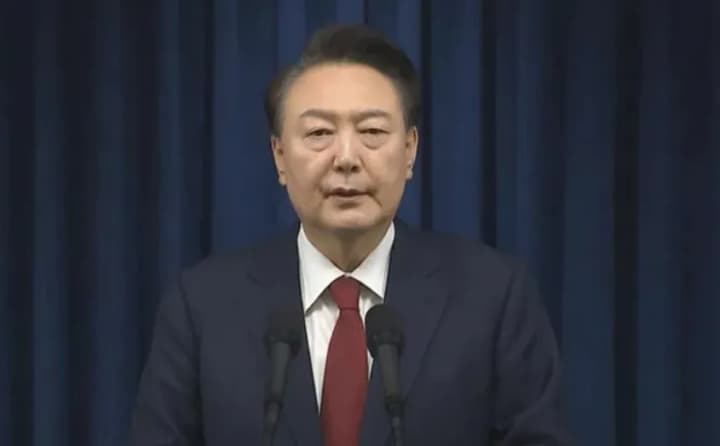South Korean President Yoon Sok Yol was banned from leaving the country due to an unsuccessful attempt to impose martial law. This led to a criminal investigation against him, as well as aggravated the political crisis, against which there are increasingly calls for his resignation.
This is reported by Reuters, reports UNN.
Details
The head of the high-ranking Corruption Investigation Office, Oh Dong-UN, said that Yoon Sok Yol was banned from leaving the country. A representative of the Ministry of Justice confirmed the implementation of this decision. The president was also the target of a criminal investigation on charges of treason after a failed attempt to impose martial law, which was lifted just six hours after parliament voted against.
Political crisis and resignation demands
Yoon apologized for his actions, but did not resign, leaving his fate to his power of the People Party. However, the party decided to delegate presidential powers to the prime minister, which caused a constitutional crisis. The opposition insists on immediate impeachment and bringing the president to justice.
At the same time, the arrest of former Defense Minister Kim Yong-hyun for his involvement in an attempt to impose martial law escalated the conflict. Many senior military officials, including the acting defense minister, have openly stated that they will not carry out such orders in the future.
Geopolitical influence
Yoon's decision to declare a state of emergency sparked protests in the streets and raised concerns among Seoul's allies. US Secretary of Defense Lloyd Austin canceled plans to travel to South Korea, and US Secretary of State Anthony Blenken called his Korean counterpart, saying he expected the democratic process to win.
It is noted that the United States has 28,500 military personnel in South Korea, which is a legacy of the Korean War of 1950-1953.
Amid internal turmoil, the region remains tense: North Korea is providing military assistance to Russia in the war against Ukraine. This increases the challenges to security and stability in the region.
Economic consequences
The political crisis also poses a threat to Asia's fourth-largest economy. The Opposition warns of possible irreversible consequences for financial markets, while government agencies have already stepped up plans to stabilize the situation by the end of December.
Development prospects
The crisis in South Korea is at a critical stage. On the one hand, there is growing pressure on Yuna to resign, and on the other hand, the president's party is creating a working group for an orderly transition of power. There is a debate in society and among experts about whether the prime minister is capable of performing the functions of the head of state.
The fate of President Yoon is still uncertain.
recall
A special forces officer revealed the truth about a scandalous raid on the South Korean parliament.He stated that the soldiers acted on the orders of the former defense minister, who later resigned.
